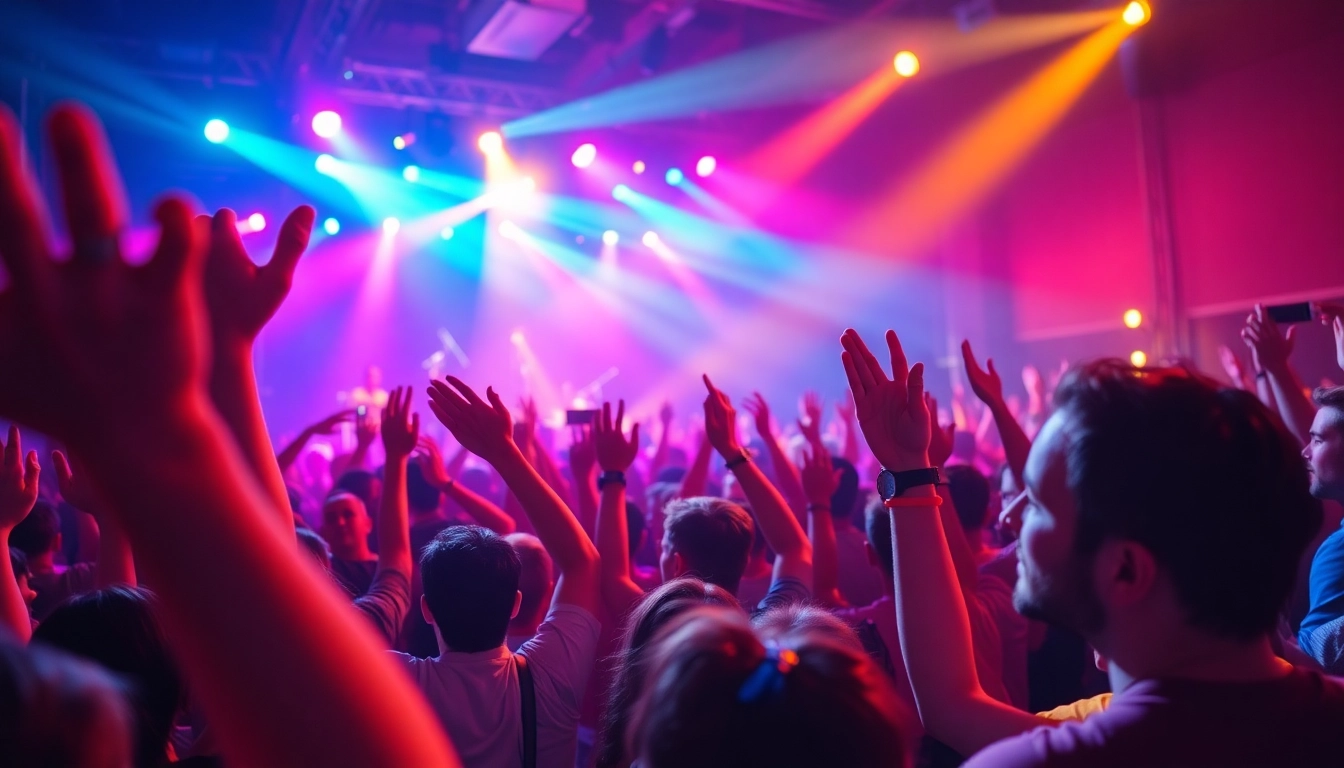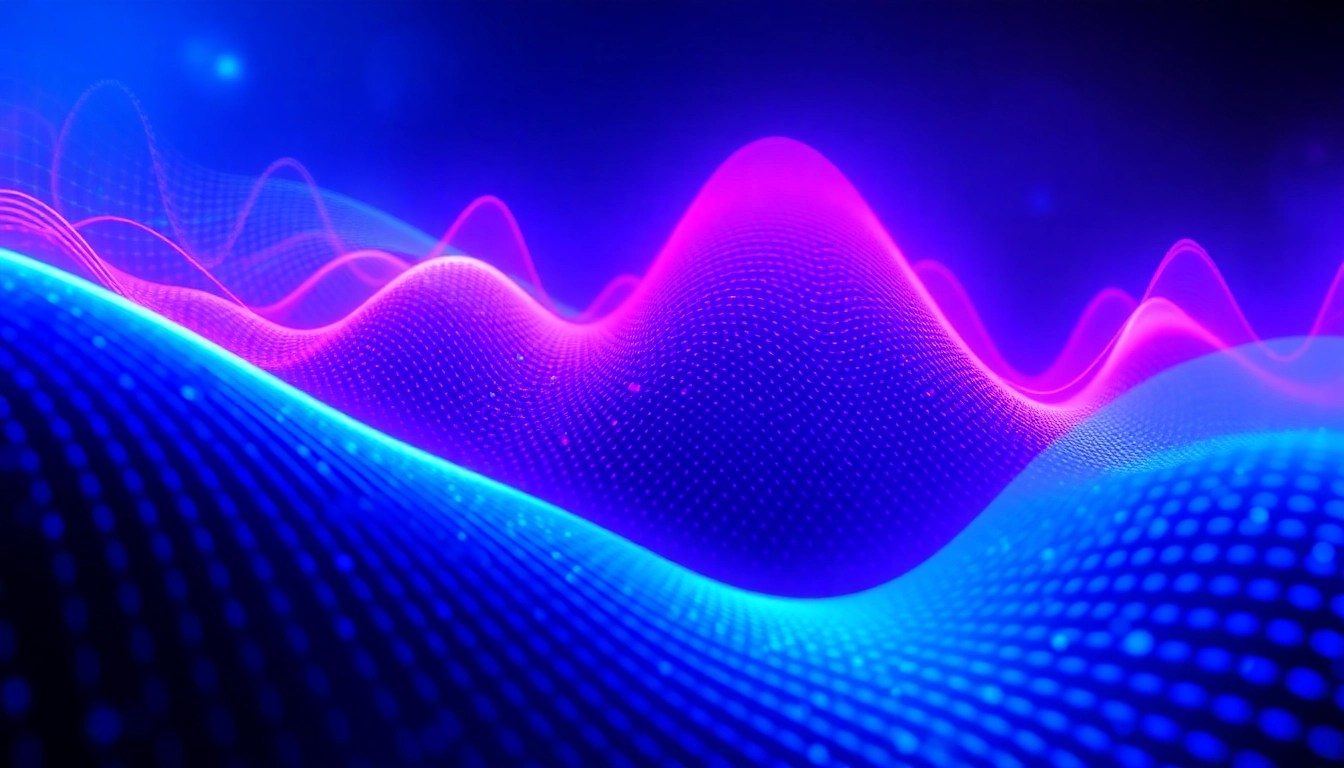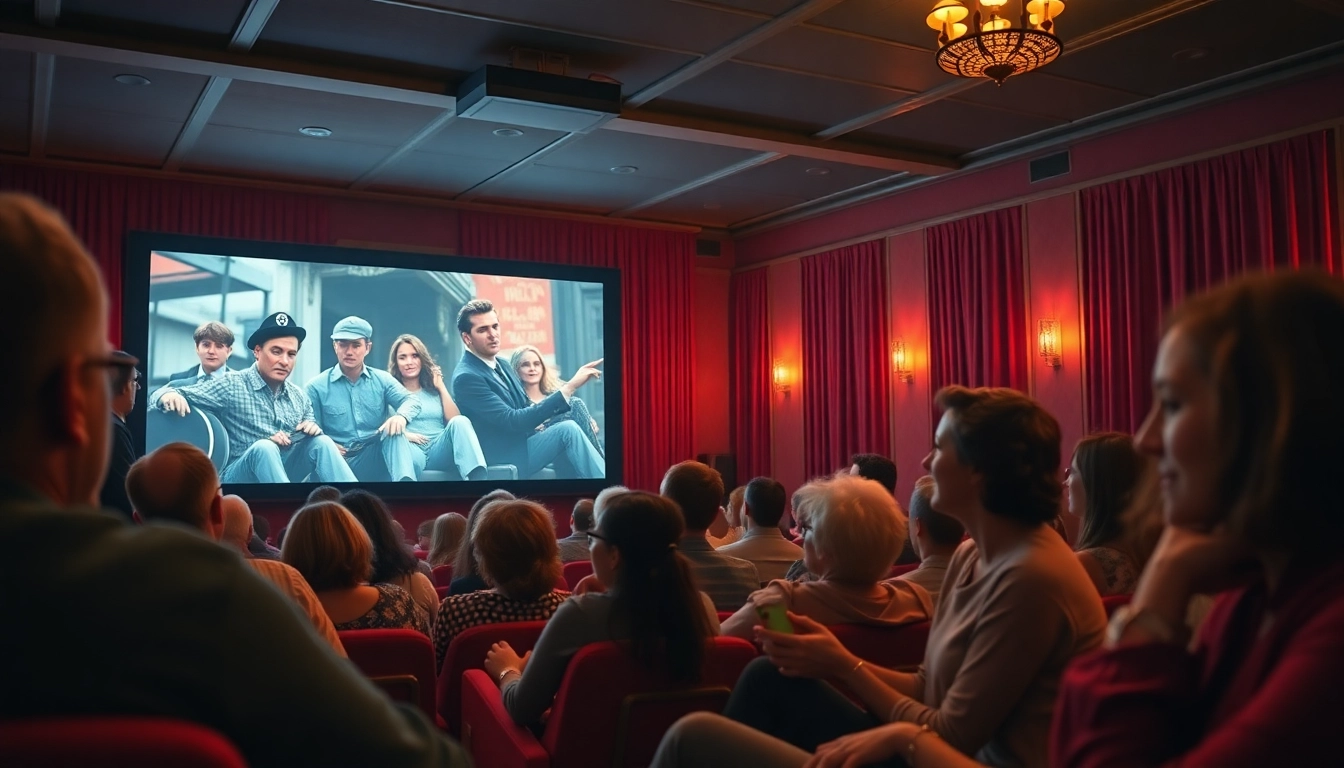Understanding the Passion of Live Music Fans
Live music fans embody a unique and vibrant community, driven by their passion for musical experiences that resonate with their emotions, creativity, and social connections. Engaging with this demographic requires a nuanced understanding of their psychology, attributes, and the tight-knit communities that form around their shared love for music. For the modern-day music enthusiast, participating in live events isn’t merely about the sound; it’s a complete sensory experience. From the anticipation of an upcoming show to reflecting on memories made at concerts, these fans cultivate a dedication that merits a deep dive. As we explore this dynamic audience, it’s crucial to integrate strategies that enhance their experiences and foster loyalty, ultimately leading to meaningful connections. For insights specific to Live Music Fans, let’s delve deeper.
The Psychology Behind Live Music Engagement
The psychology of live music engagement can be traced back to the fundamental human need for connection, expression, and communion. Cognitive dissonance theory suggests that attending live performances not only affirms one’s love for artists but also shapes one’s identity. Fans experience a rush of emotions; the excitement, joy, and sometimes sadness, contribute to a rich tapestry of memories. Music produces dopamine, creating feelings of happiness and pleasure. This neurochemical reaction explains why live music becomes a primary source of joy and community bonding for many.
Moreover, social identity theory posits that people derive self-esteem from their connections to social groups. For live music fans, belonging to a scene or a fanbase can provide a sense of purpose and identity, driven by shared values and collective experiences. The emotional highs reached during live performances often foster a community among fans, allowing them to share stories, connect with like-minded individuals, and create lifelong friendships based on mutual interests.
Common Attributes of Dedicated Live Music Fans
Dedicated live music fans share several key attributes that not only define their relationship with music but also guide their behavior and engagement strategies:
- Passion: At the core of a live music fan is an unyielding passion for their favorite artists and genres. This passion drives attendance at shows, active participation in fan forums, and the collection of merchandise.
- Loyalty: Fans often exhibit fierce loyalty to artists and bands, leading them to attend multiple concerts, leading to significant revenue for venues and artists, and a sense of belonging amongst fellow concertgoers.
- Community-Oriented: Many fans find that their love for music extends beyond themselves. They seek to share experiences with other fans, whether by inviting friends to concerts or participating in online fan communities.
- Explorative Nature: Dedicated fans are often eager to explore new genres or underground artists. Their curiosity fuels the discoverability of emerging talent.
- Commitment to Experience: Attending concerts is not just an event for fans; it’s a ritual. They often invest time and resources into making their concert experience memorable, from traveling long distances to coordinating with friends.
The Role of Community in Live Music Culture
Live music thrives on its community. Fans are not just passive consumers; they are active participants who contribute to the culture surrounding live events. From fan clubs to social media groups, the online presence of music fans amplifies their voices, allowing them to share their experiences, opinions, and recommendations.
Communities often arise around local venues, specific genres, or artists, providing fans with a sense of solidarity. These groups foster collective activities: organizing meetups at concerts, participating in online discussions, and even mobilizing support for their favorite artists in creative ways. Historically, events like “Record Store Day” and “Listening Parties” have been successful in fostering community engagement.
The sense of belonging enhances the concert experience, making fans more likely to share their experiences online through social media or review platforms, thereby attracting new members into the community and perpetuating the cycle of music appreciation.
Effective Marketing Tactics for Live Music Fans
Gaining the attention of live music fans requires a carefully tailored marketing strategy that resonates with their interests and engages their emotions. Marketers must understand the fan persona, utilizing the motivations and behaviors discussed above to create compelling campaigns that inspire action.
Targeted Social Media Campaigns for Live Events
Social media platforms have become the forefront of engagement for live music fans. Platforms such as Instagram, TikTok, and Facebook allow for targeted advertising campaigns that can reach niche audience segments. By utilizing geo-targeting features, marketers can promote local concerts to fans within specific regions, heightening the chance of ticket sales.
Engagement strategies should encompass a variety of content types including live videos, behind-the-scenes local artist interviews, and user-generated content from fans who attend events. This not only creates excitement but also establishes a sense of community around the event. Hashtags can help elevate a campaign’s reach, connecting various fan interactions into a larger narrative.
Leveraging Influencers to Reach Live Music Audiences
Influencer marketing continues to be a powerful tool for brands attempting to reach live music audiences. By partnering with music influencers who have dedicated follower bases, brands can create authentic and relatable content that resonates with fans. Influencers often have the ability to sway opinions and encourage attendance, particularly if they model their own experiences in attending shows.
Potential collaborations range from sponsored posts to exclusive event access for influencers who can share real-time updates with their followers. This can create a buzz and anticipation while amplifying authentic fan experiences.
Utilizing Email Marketing to Cultivate Fan Loyalty
Email marketing remains a robust channel for maintaining relationships with live music fans. By cultivating an email list comprised of previous ticket purchasers, exclusive club members, or engaged followers, marketers can nurture loyalty through tailored communication.
Implementing personalized content based on past behaviors and interests will create value, such as offering early access to tickets, special merch, or loyalty rewards. The effectiveness of this channel can be measured through analytics, tracking open rates, click-through rates, and subsequent ticket sales.
Creating Memorable Experiences for Live Music Fans
Creating memorable experiences is central to lasting relationships with live music fans. Industry stakeholders must prioritize the fan experience, ensuring every touchpoint leaves a positive impression that resonates long after the concert ends.
Innovative Event Planning and Management Tips
Successful event planning involves anticipating fan needs and desires. Understanding the demographics and psychographics of attendees can aid in crafting the ideal atmosphere. Elements such as scheduling, accessibility, and amenities must align with fan expectations. For instance, offering food trucks featuring local cuisine and sustainable options can significantly enhance experiences.
Here are a few tips for innovative event planning:
- Utilize Hybrid Formats: Combining in-person events with virtual access can help capture a broader audience, allowing fans who may not be able to attend physically still to participate.
- Engage with Local Talent: Opening opportunities for local musicians to perform can spread goodwill and attract their fanbase to the event, contributing to an enriched experience.
- Embrace Sustainability: Consider eco-friendly practices and offerings that resonate with socially conscious fans. This could involve recycling initiatives at events or partnerships with local environmental organizations.
Enhancing Venue Atmosphere for Fan Satisfaction
The venue itself plays a pivotal role in fan satisfaction. As audiences come together to share an experience, the atmosphere contributes significantly to the overall enjoyment. Elements such as acoustics, lighting, and comfortable seating can greatly influence how fans perceive an event.
Creating themed photo opportunities or immersive set designs can also encourage fan engagement both on and offline, as fans share their experiences on social media platforms. Additionally, the availability of charging stations, clean restrooms, and efficient entry processes can greatly enhance the overall experience.
Incorporating Technology to Elevate Concert Experiences
Embracing technology can vastly elevate the concert experience for fans. From cashless payment solutions to apps that offer personalized itineraries, technology adds efficiency and convenience. Considering Factors such as high-quality sound systems, LED displays, and augmented reality experiences also contribute to rich, engaging events.
Moreover, live-streaming or virtual reality experiences can cater to a broader audience, enabling those unable to attend in person to enjoy the event in real-time. The integration of interactive features, such as polls or fan-generated content displays, encourages audience participation and elevated engagement.
Building a Brand That Resonates with Live Music Fans
Building a brand that resonates with live music fans is not merely about selling tickets but creating an emotional connection that thrives on shared experiences and authenticity.
Establishing Authentic Brand Identity in the Music Scene
Authenticity is fundamental. A brand’s identity must reflect true values, engaging with fans rather than treating them as mere statistics. Initiating partnerships with local artists and engaging relatably on social media fosters credibility. Engaging narratives about the music scene or behind-the-scenes insights can create a storytelling aspect that deepens connections.
Encouraging user-generated content is another way to magnify authenticity; featuring fan submissions in promotional materials or social media further cultivates genuine engagement.
Crafting Compelling Content that Speaks to Fans
Content marketing plays a vital role in connecting with live music fans. Crafting content that reflects their interests not only drives traffic but also establishes value. This could include blog posts, interviews with artists, reviews of shows, and even nostalgia pieces that resonate with the audience’s shared history and memories.
Specialized content, such as playlists curated by popular artists or local musicians, can further enhance engagement, providing fans with an enriched listening experience that keeps them connected.
Measuring Brand Engagement Among Live Music Fans
Monitoring brand engagement is essential for evaluating marketing effectiveness. Metrics such as social media engagement rates, website analytics, and feedback from fan polls provide insights into audience relationships. Additionally, gathering qualitative feedback through surveys post-events can shed light on fans’ perceptions and areas for improvement.
Utilizing measurements like Net Promoter Score (NPS) can gauge fan loyalty, determining how likely fans are to recommend experiences or brands within their communities. Continuous tracking and adapting strategies based on this feedback cultivates a cycle of ongoing engagement and growth.
The Future of Live Music and Fan Engagement
The future of live music and fan engagement is bright, particularly as technology evolves and music trends shift. As artist-fan relationships deepen through innovative approaches, the landscape of live music continues to transform.
Emerging Trends in Concert Experiences
Emerging trends indicate a potential for more diverse concert formats. Interactive concerts where audience members may play roles or influence set lists are surfacing. Notably, intimate shows and pop-up experiences are gaining popularity, shying away from large venues in favor of uniqueness and personalization. Exclusive access through perks such as meet-and-greets enriches fan experiences.
Additionally, experiential concerts that blend multiple forms of entertainment, such as art displays or food experiences, can enrich the concert atmosphere and draw a diverse crowd of attendees.
How Streaming Platforms Influence Live Music Fans
The rise of streaming platforms has influenced live music consumption significantly. Fans’ familiarity with artists through streaming has accelerated the trend of purchasing concert tickets, as audiences perceive artists they enjoy widely, driving more attendance at live events.
Streaming services offering live recordings or virtual concerts have allowed fans to engage with artists in unique ways while creating a hybrid model of consumption that leverages both online and offline experiences.
Preparing for the Post-Pandemic Music Landscape
The COVID-19 pandemic reshaped the music industry, disrupting live events and changing fan expectations. As we transition into the post-pandemic landscape, safety remains paramount. Outdoor venues, limited capacities, and health guidelines will continue to shape how events are carried out while enhancing fan confidence.
Brands must remain adaptable, utilizing feedback and adjusting strategies to meet the evolving behavioral patterns and preferences of audiences. Creative marketing approaches and thoughtful planning will remain central to engaging live music fans as they return to concerts eager for connection and shared experiences.



